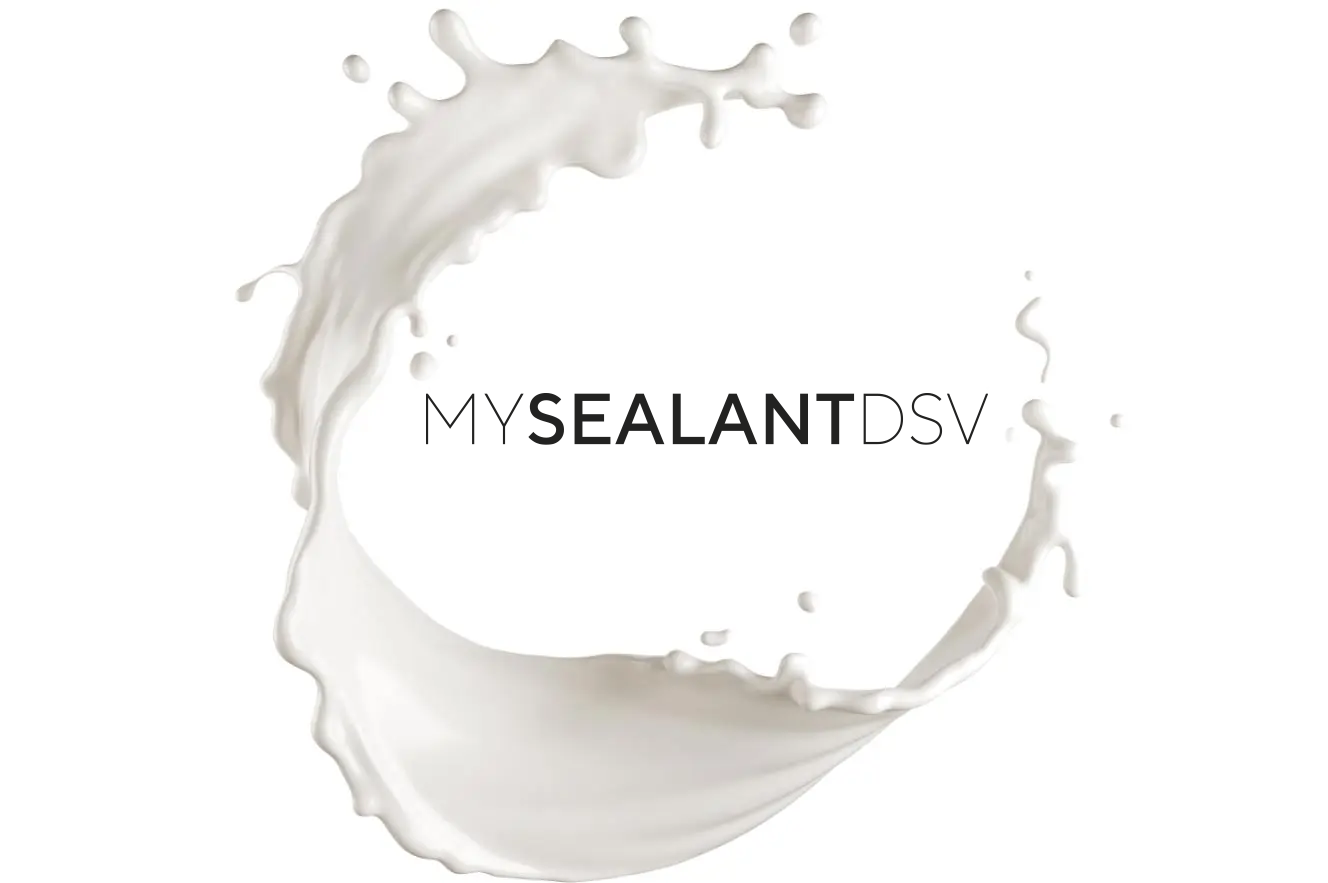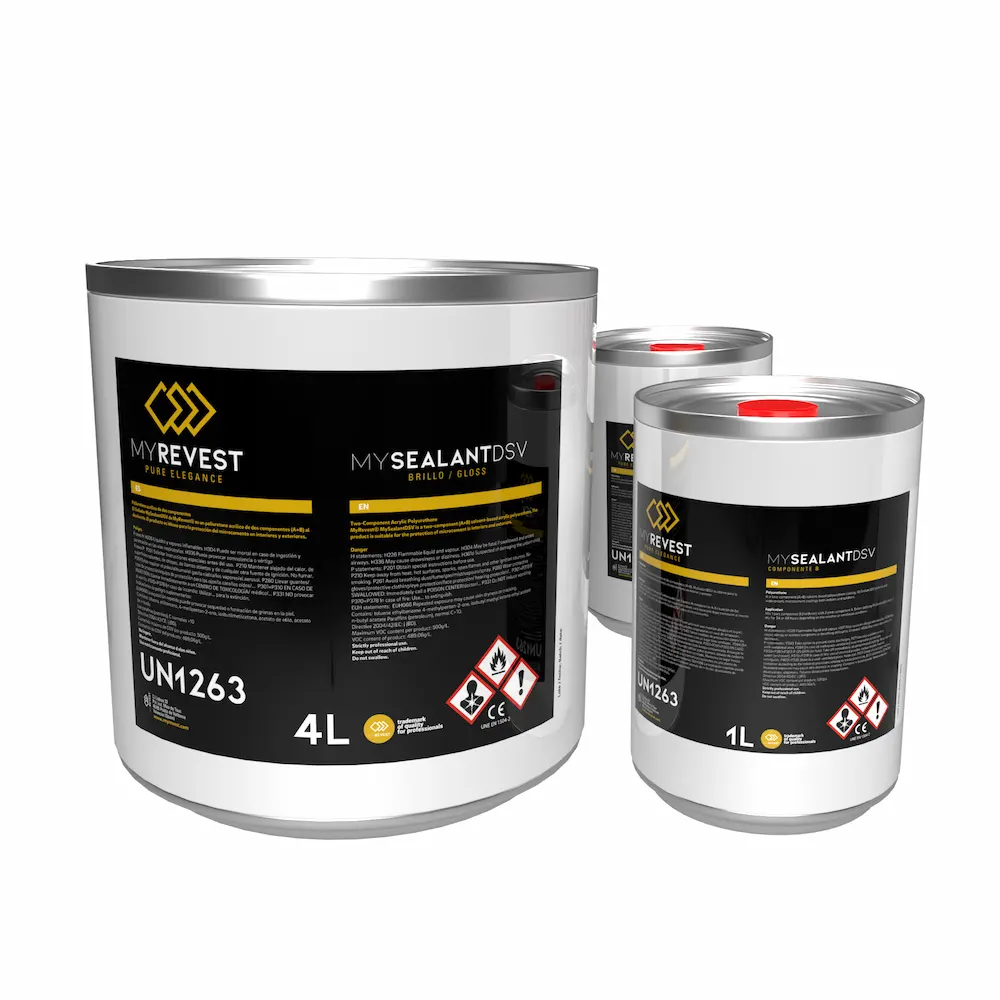



Line of two-component acrylic polyurethane varnish (A+B) with solvent, MySealant DSV. A high-performance sealer ideal for protecting both interior and exterior surfaces coated with microcement.
Product that presents excellent properties in terms of resistance. Its condition remains optimal against wear from abrasion, water, ultraviolet light, and scratches, as well as against the use of household cleaning agents.
A two-component acrylic polyurethane sealer with the ability to confer on microcement surfaces a more enhanced color. Its finishes are available in satin, gloss and matte.
Solids
Comp.A: 40%
Comp.B: 39%
Viscosity
20s (Ford Cup 4)
Hardness
14-day cure: 120 seconds
Color
Colorless (when dry)

It is essential that prior to the application of the MySealant DSV Sealant, it is ensured that the surface is free of dust and completely dry. Prior to applying polyurethane on microcement, a period of 24 to 48 hours should be allowed to elapse depending on the climatic conditions and the ventilation of the workspace.
Once everything is in order, the mixture should be applied with a short-haired velour roller or spray gun, ensuring that the application is carried out at an ambient temperature of between 10°C and 30°C.
Afterwards, using a 400-grit sandpaper, the first coat should be lightly retouched. Once done, wait a minimum of 8 hours and a maximum of 2 days to apply the second coat. It should be taken into account that if you are working on an old surface, any type of grease, oil, dust, etc. stains must be removed.
To conclude, and as a precaution, check the adherence of the product on a corner of the surface. Once its effectiveness is guaranteed, proceed with varnishing it in its entirety.